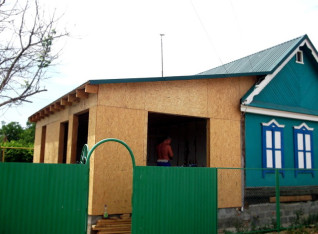Registration of place of residence: difficulties and nuances in the context of changes in real estate
Registering your place of residence is not just a formality, but an important legal procedure that confirms your connection with a specific address. However, in a world where real estate is constantly changing - from apartment refurbishments to new buildings - this process can be a real challenge.
Home redevelopment has become common. Owners seek to optimize space by combining rooms or changing their purpose. However, not everyone realizes that such intervention requires official registration. Legalization of redevelopment is a process that includes obtaining permits, preparing technical documentation and registering changes with the relevant authorities. Without this, you risk encountering problems when registering your place of residence, because the actual planning may not correspond to the documents.
Registration also becomes more complex when it comes to properties acquired through non-traditional means. For example, acquiring ownership by acquisitive prescription is an opportunity to become the legal owner of property that you have owned openly, in good faith and continuously for a long time. However, this process requires a court decision and registration of ownership, without which registration of residence is impossible.
A separate challenge is registration in buildings that require legalization. These could be old buildings built without proper permits, or new buildings built with violations. Legalization of a building is a complex procedure, including technical examination, obtaining permits and entering the property into the real estate register. Without legalizing the building, you will not be able to register as a resident there.
Often, owners expand their properties through additions or extensions. This could be an additional floor, an attic or a new room. However, designing a superstructure or extension is not just construction work. Permits must be obtained, building codes must be met, and the new space must be registered. Legalizing a superstructure or extension is the only way for new meters to become an official part of your home, suitable for registration.
In rural areas, the common practice of owning shares - particles of land. If there is a residential building on such land, the question of registering the share as a place of residence arises. This requires not only registration of land ownership, but also recognition of the building as residential and its inclusion in the real estate register.
Particular attention should be paid to verification before registration. This applies to both the real estate itself and documents. For example, when purchasing an apartment for redevelopment, it is worth checking whether it was legalized by the previous owner. Also, if you plan to register in a private house, make sure that it is officially registered and is not considered a self-construction.
Registration of place of residence in properties requiring legalization may take longer. Legalization is not a quick process. It includes collecting documents, obtaining permits, technical surveys, possible legal procedures and, finally, registration with government authorities. Therefore, when planning to purchase a property with “features,” keep these terms in mind.
It is important to understand that registration is not just a stamp in your passport. This is a recognition of your right to live in a particular premises, based on the legality of the property itself. Therefore, when it comes to atypical real estate - be it an apartment for redevelopment or a self-construction, or even a share - the process becomes more complicated.
In some cases, owners try to circumvent the procedures by registering at an old address or with relatives. However, this does not solve the problem, but only postpones it. Sooner or later, the issue of legitimation will arise, especially when trying to sell, donate or inherit such property.
Special mention should be made of responsibility. Living in an illegal building or an apartment with illegal modifications may result in fines. Moreover, in emergency situations (fire, collapse) you may encounter compensation problems, because officially such an object “does not exist.”
The positive thing is that today the registration and legalization processes have become more structured. There are clear algorithms for the legalization of buildings, superstructures, and extensions. There are specialized law firms that help with redevelopment and other changes to real estate. This simplifies the path to official registration.
To summarize, registering a place of residence in modern realities is more than an administrative procedure. This is recognition of the legitimacy of your home. If you own real estate that needs to be legalized - either because of redevelopment, or as a self-construction, or as a result of expansion - do not put off this issue. Legalization will not only allow you to officially register, but will also protect your rights and investments in the future.




































